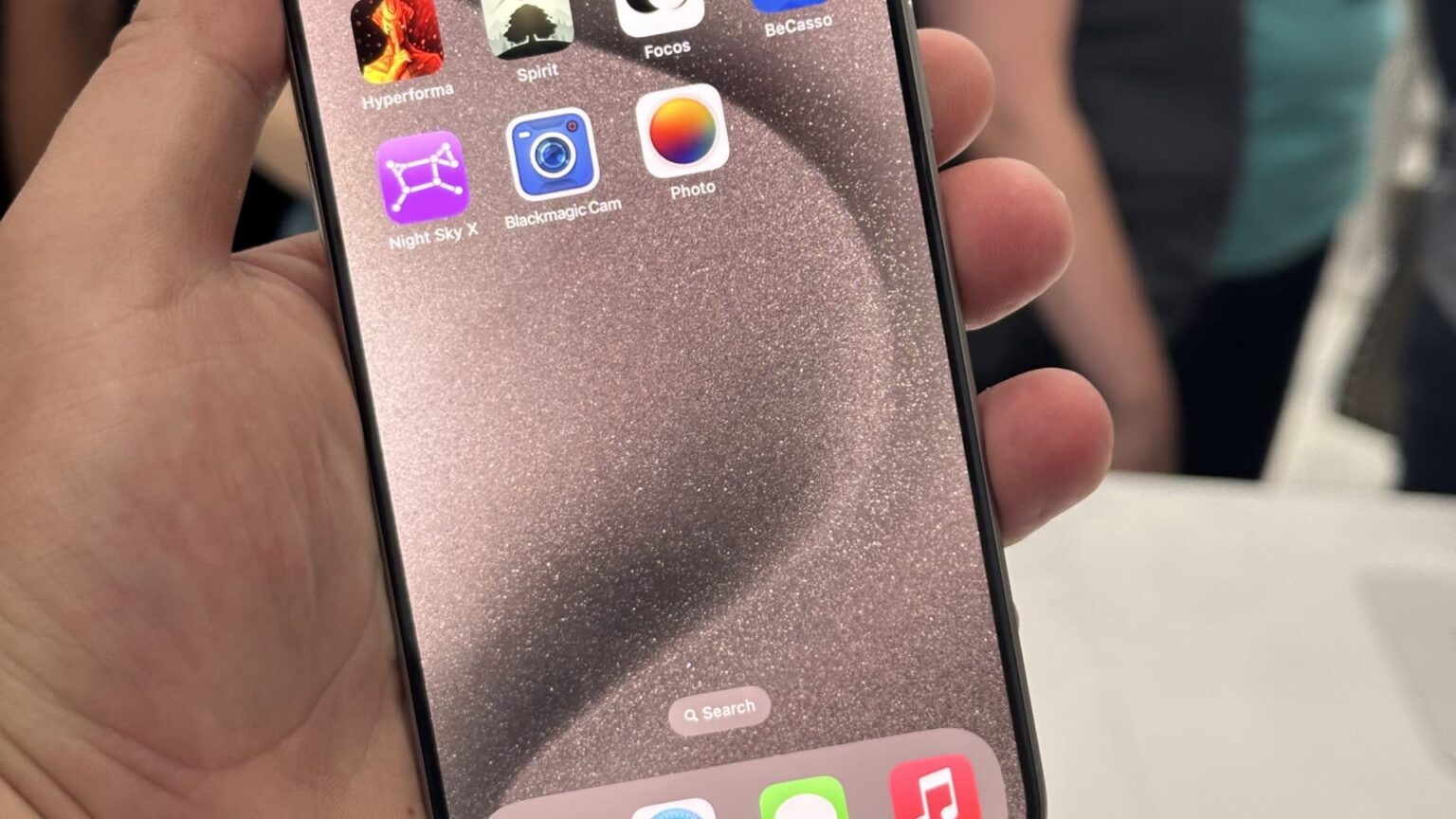Apple announced its new iPhones for 2023 on Tuesday at its headquarters in Cupertino, California.
This year’s models are called the iPhone 15. There are four new models, ranging from the entry-level iPhone 15 at $799 to the iPhone 15 Pro Max, which costs at least $1199.
I was able to hold and test out the new devices on Tuesday, and although most of this year’s improvements aren’t immediately noticeable to the untrained eye, there was one aspect of the new devices that made me go “wow.”
The new Pro devices are significantly lighter, thanks to their new bodies, which replaced steel with titanium. The moment I picked one up, I could immediately can tell that it’s way easier to hold and won’t weigh down my pockets as much.
In fact, I think the reduced weight is so significant that people with last year’s Pro phones — like me — should consider updating. After all, people hold their phones for hours a day. Even shaving off a little bit of weight makes it a much more pleasant experience.
Apple says that the 6-inch iPhone 15 Pro is 187 grams, or 9% lighter than last year’s model. The iPhone 15 Pro Max, with a bigger 6.7-inch screen, weighs 8% less.
In the 2001 comedy “Zoolander,” one memorable gag spoofed cell phones by implying that they would get smaller and smaller until they were a tiny speck.
The iPhone and the rise of smartphones changed that, as people wanted bigger, brighter screens and longer battery life, and were willing to trade size and weight for a more useful device.
In fact, Apple’s “pro”-level iPhone with a 6-inch screen has been getting heavier every year since 2019, despite no major changes in the phone’s general shape. The light-and-small “mini” iPhones, introduced in 2020, haven’t been a success in terms of sales, and haven’t gotten an update in two years.
But the trend towards brick-like smartphones has firmly shifted this year with the iPhone 15. I don’t care for the very biggest Pro Max phones, even though they have bigger screens and more battery life, simply because they are so large and heavy. But this year’s model, with the lighter titanium body, was much more manageable from a heft perspective, and some people who had previously written off the most expensive devices may find themselves taking another look.
The weight is such a big deal that I think that some people will upgrade simply for the lighter weight. I’m considering it, even though $999 (or more, if you need more than 128GB of storage) for an iPhone 15 Pro is a lot of money, especially if you have a phone that works just fine — but at the very least, my pinky finger, which holds up my phone when I’m using it, will appreciate it.
Other notes from the iPhone 15 hands-on
This year’s colors don’t really pop. In particular, the titanium colors on the iPhone 15 Pros aren’t very bright and appear at a distance to look like shades of gunmetal.
Apple isn’t making leather and silicone cases anymore. They’ve been replaced by a new woven material case, which doesn’t really stand out. From a distance, it looks a lot like last year’s silicone.
The mainstream iPhone 15, which comes in two sizes, hasn’t changed that much on the outside from last year’s model. However, the bezels around the front have been smoothed, which is a nice touch.
The entry-level iPhone 15 models also have the “Dynamic Island,” a software feature that hides the phone’s front-facing camera under the screen.
The iPhone 15 Pro Max did get a $100 price increase, now starting at $1,199 in the U.S., although you get more storage at the entry level.
The button that has replaced the mute switch on the Pro phones has a very fun animation when you hold it down. I suspect most people will customize it to pull up the camera app quickly.
USB-C is the default port on all the devices this year, and it’s glorious. Finally, someone with a Mac, iPhone, and wireless headphones will be able to charge them all with the same charger. People with Android phones will be able to borrow chargers from iPhone users and vice versa, and finding a way to juice up will just get a little bit easier for iPhone users.
Read the full article here










